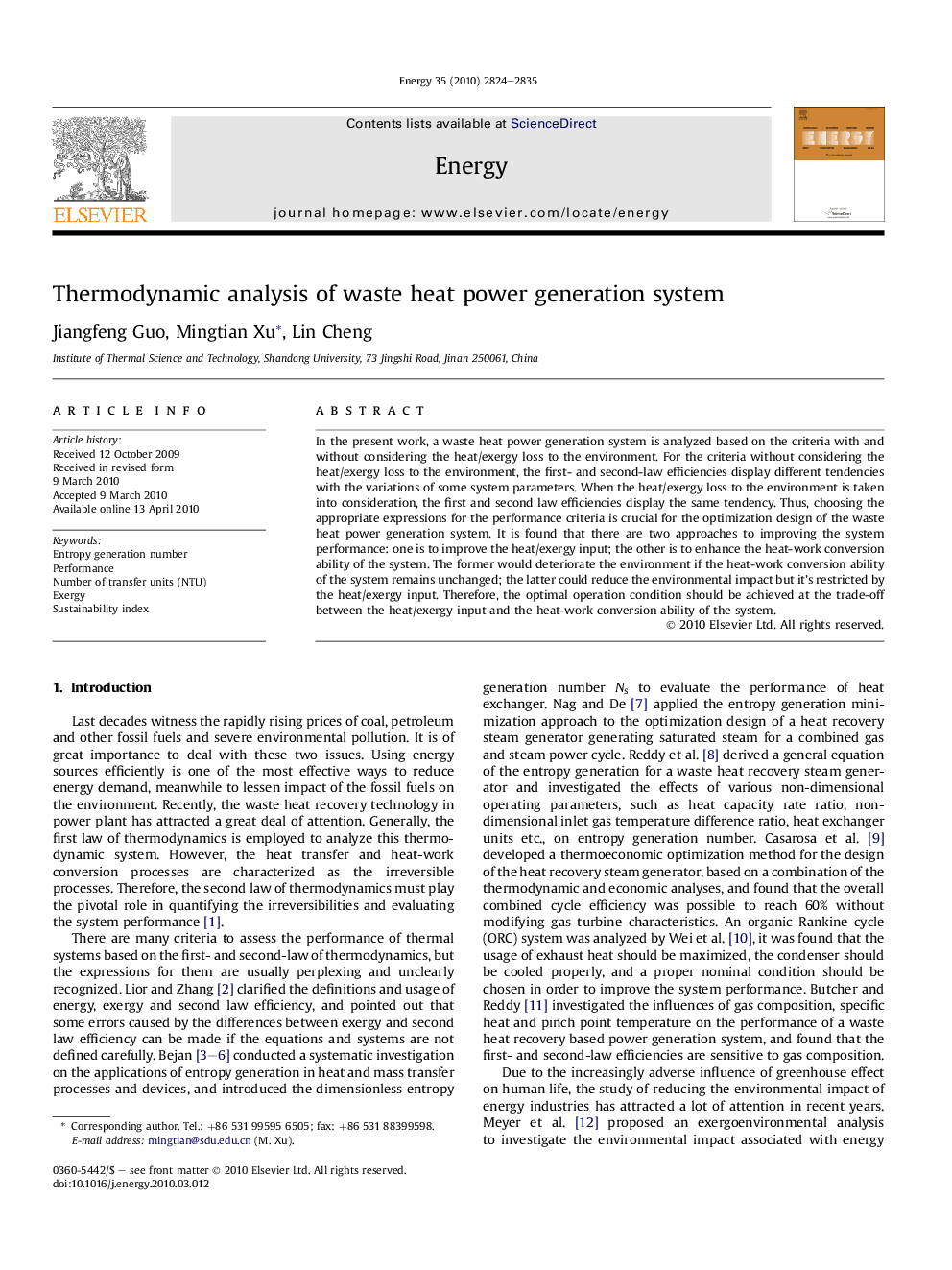| Article ID | Journal | Published Year | Pages | File Type |
|---|---|---|---|---|
| 1735058 | Energy | 2010 | 12 Pages |
In the present work, a waste heat power generation system is analyzed based on the criteria with and without considering the heat/exergy loss to the environment. For the criteria without considering the heat/exergy loss to the environment, the first- and second-law efficiencies display different tendencies with the variations of some system parameters. When the heat/exergy loss to the environment is taken into consideration, the first and second law efficiencies display the same tendency. Thus, choosing the appropriate expressions for the performance criteria is crucial for the optimization design of the waste heat power generation system. It is found that there are two approaches to improving the system performance: one is to improve the heat/exergy input; the other is to enhance the heat-work conversion ability of the system. The former would deteriorate the environment if the heat-work conversion ability of the system remains unchanged; the latter could reduce the environmental impact but it’s restricted by the heat/exergy input. Therefore, the optimal operation condition should be achieved at the trade-off between the heat/exergy input and the heat-work conversion ability of the system.
